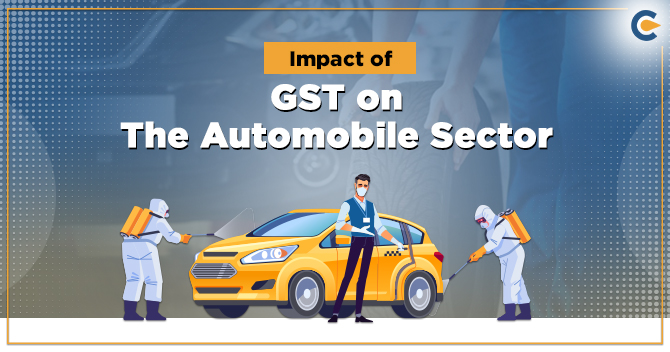
In the labyrinth of India’s tax structure, the Goods and Services Tax (GST) emerged as a beacon of simplicity, promising to revolutionize various sectors, including the automobile industry. Since its inception, GST has streamlined tax procedures, eliminating the burden of multiple taxes and ushering in a new era of uniform taxation. In this blog post, we delve into the impact of GST on the automobile sector and unravel the GST registration procedure, simplifying compliance for industry players.
The GST Impact: Streamlining Taxation in the Automobile Sector
Gone are the days of navigating through a maze of excise duties, VAT, sales tax, and myriad other levies. With the implementation of GST, the taxation landscape underwent a seismic shift, consolidating multiple taxes into a single, comprehensive tax regime. For the automobile industry, this meant a significant reduction in the overall tax burden, fostering a conducive environment for growth and development.
Let’s break down the GST rates across different segments of the automobile industry:
- Small Cars: Vehicles like the Hyundai Grand i10, Maruti Suzuki Swift, and Volkswagen Polo fall under the 18% tax bracket, providing relief to manufacturers and consumers alike.
- Mid-size Cars: The tax rate remains consistent at 18% for mid-sized cars such as the Honda Amaze, Maruti Baleno, Tata Nexon, and Nissan Kicks, ensuring uniformity across the spectrum.
- Luxury Cars: With luxury comes a slightly higher tax rate of 28% for cars like the Bugatti Chiron, Land Rover, Toyota Land Cruiser, Lamborghini Aventador, offering a balanced approach to taxation.
- SUVs: Sports Utility Vehicles (SUVs) like the Renault Duster, Jeep Compass, and Maruti Vitara Brezza attract a GST rate of 28%, reflecting the diverse nature of the automobile market.
- Electric Vehicles: In a bid to promote sustainable mobility, electric vehicles enjoy a reduced GST rate of 12%, incentivizing both manufacturers and consumers to embrace eco-friendly alternatives.
The introduction of GST has undeniably been a game-changer for the automobile industry, fostering growth, and efficiency while ensuring equitable taxation across various segments.
Streamlining GST Registration: A Hassle-Free Process
In line with the government’s vision of economic prosperity, GST registration has been made mandatory for all automobile companies and dealers. Fortunately, the registration process is simpler than ever, thanks to platforms like Online Legal India™, which offer comprehensive assistance at every step of the way.
Here’s a glimpse of the GST registration procedure:
- Documentation: Gather the necessary documents required for GST registration, including business details, PAN card, Aadhar card, and address proof.
- Online Registration: Navigate to Online Legal India™ and upload your documents. Expert GST taxation professionals are on hand 24×7 to guide you through the process.
- Assistance and Compliance: Once registered, avail of online assistance for timely GST filing and compliance, ensuring seamless adherence to regulatory requirements.
In addition to GST registration, Online Legal India™ offers a plethora of services ranging from company registration to trademark registration, bookkeeping & accounting, and other legal services, making it a one-stop destination for all your business needs.
In conclusion, the introduction of GST has ushered in a new era of simplicity and efficiency in the automobile industry. By streamlining taxation and simplifying compliance, GST has paved the way for sustained growth and development, propelling India’s automotive sector towards a brighter future. Embrace the change, streamline your GST registration process, and embark on a journey towards prosperity in the dynamic world of automobiles.
This article is only a knowledge-sharing initiative and is based on the Relevant Provisions as applicable and as per the information existing at the time of the preparation. In no event, RMPS & Co. or the Author or any other persons be liable for any direct and indirect result from this Article or any inadvertent omission of the provisions, update, etc if any.
